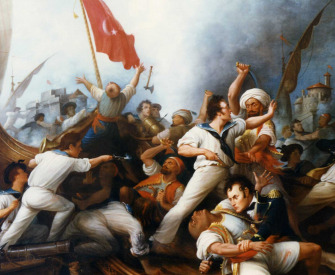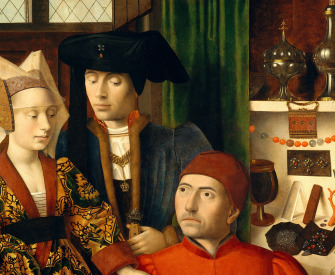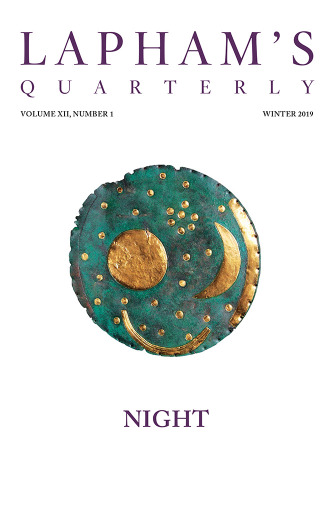Man, looking into the sea—
taking the view from those who have as much right to it as you have to it yourself—
it is human nature to stand in the middle of a thing
but you cannot stand in the middle of this:
the sea has nothing to give but a well-excavated grave.
The firs stand in a procession—each with an emerald turkey foot at the top—
reserved as their contours, saying nothing;
repression, however, is not the most obvious characteristic of the sea;
the sea is a collector, quick to return a rapacious look.
There are others besides you who have worn that look—
whose expression is no longer a protest; the fish no longer investigate them
for their bones have not lasted:
men lower nets, unconscious of the fact that they are desecrating a grave,
and row quickly away—the blades of the oars
moving together like the feet of water spiders as if there were no such thing as death.
The wrinkles progress upon themselves in a phalanx—beautiful under networks of foam,
and fade breathlessly while the sea rustles in and out of the seaweed;
the birds swim through the air at top speed, emitting catcalls as heretofore—
the tortoiseshell scourges about the feet of the cliffs, in motion beneath them
and the ocean, under the pulsation of lighthouses and noise of bell buoys,
advances as usual, looking as if it were not that ocean in which dropped things are bound to sink—
in which if they turn and twist, it is neither with volition nor consciousness.
“A Graveyard.” Moore taught at the Carlisle Indian School of Pennsylvania—where future Olympian Jim Thorpe was a student—from 1911 to 1915, the year she began to publish poetry. T.S. Eliot in the 1930s observed that Moore’s works were among the “small body of durable poetry written in our time.” For her Collected Poems she received Pulitzer and Bollingen prizes. A sports fan, she wrote liner notes for Muhammad Ali’s 1963 spoken-word album, I Am the Greatest! Moore died at the age of eighty-four in 1972.
Back to Issue





